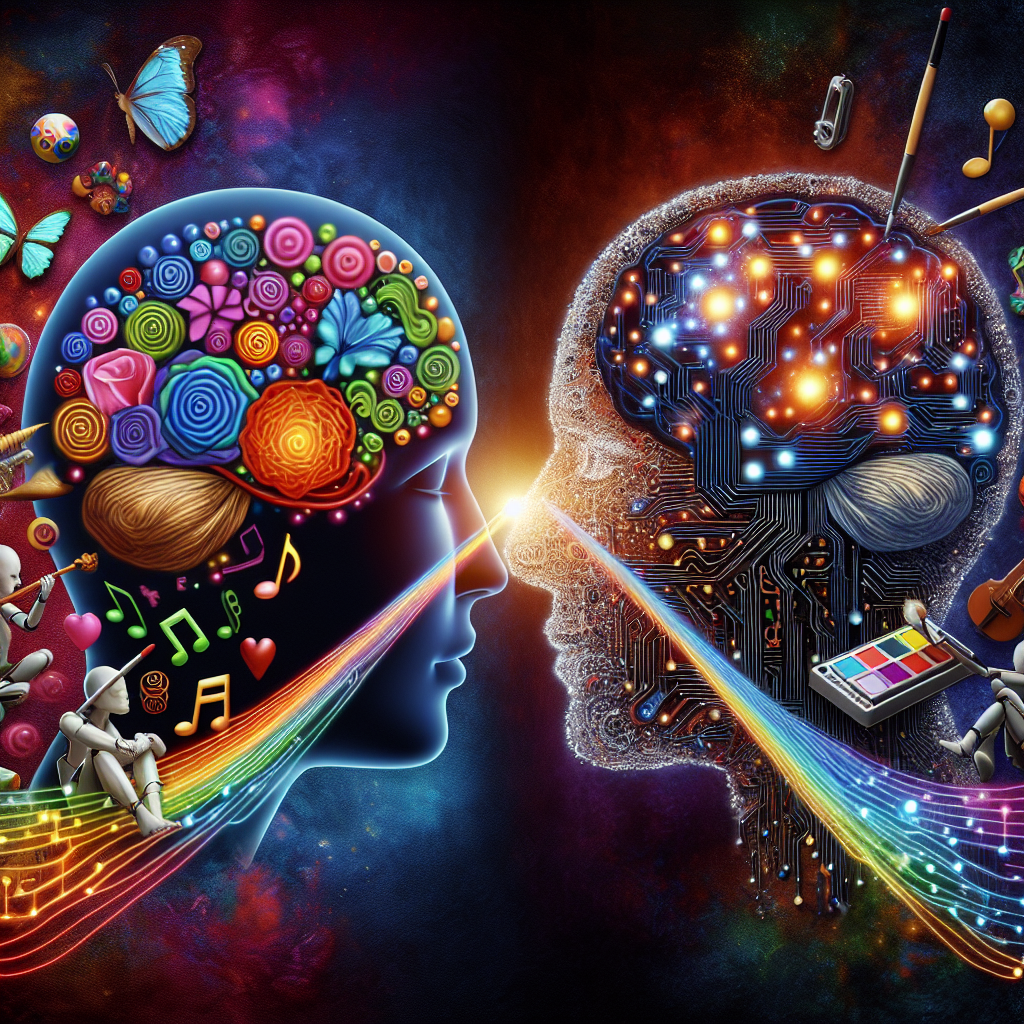The intersection of artificial intelligence (AI) and creativity has sparked significant debate in recent years. With AI’s capacity to analyze and generate data, its influence on creative processes across various fields has been profound. This article explores how AI is impacting creativity, the benefits it brings, and the challenges it poses.
Enhancing Creative Processes
AI technologies contribute to enhancing creative processes in several ways. They assist artists, writers, musicians, and other creatives by providing new tools and mediums for expression.
AI in Art and Design
In art and design, AI algorithms analyze patterns, colors, and techniques from existing artworks to generate new pieces. This capability allows artists to break traditional boundaries and experiment with innovative styles. Applications like DeepArt and Google’s DeepDream have demonstrated how AI can transform photographs into stunning pieces of art, inspiring a new generation of digital artists.
AI in Music
AI’s role in music creation is equally groundbreaking. AI algorithms can compose music in various styles, emulating the compositions of renowned musicians. This not only supports musicians in brainstorming and developing new pieces but also democratizes music creation. Platforms like OpenAI’s MuseNet and Sony’s Flow Machines have showcased AI’s potential to compose symphonies and pop songs, making high-quality music production more accessible.
AI in Writing
Writers are leveraging AI for content generation, editing, and idea generation. AI tools like GPT-4 can draft articles, suggest headlines, and even provide storytelling prompts. These tools help writers overcome creative blocks and enhance their productivity by automating mundane tasks.
AI as a Collaborative Partner
One of the most exciting aspects of AI’s impact on creativity is its potential to act as a collaborative partner rather than a mere tool. By working alongside human creatives, AI can bring new perspectives and ideas to the table, fostering a collaborative creative process.
Co-Creation in Visual Arts
In visual arts, artists are using AI to co-create artworks. By inputting initial concepts or incomplete pieces into AI systems, they receive suggestions and modifications that can inspire further development. This partnership enables artists to explore uncharted territories in their work, pushing the boundaries of traditional art forms.
Collaborative Music Production
The music industry is also witnessing a rise in AI-human collaborations. Musicians and AI systems co-produce music, blending human creativity with algorithmic efficiency. This collaboration results in unique compositions that might not have been possible through solo human efforts alone.
Challenges and Ethical Concerns
While AI’s impact on creativity is largely positive, it also raises several challenges and ethical concerns that need to be addressed.
Originality and Authorship
One major concern is the question of originality and authorship. When AI generates creative content, determining who holds the copyright can be problematic. This issue raises legal and ethical questions about ownership and the value of human creativity.
Job Displacement
Another challenge is the potential for job displacement in creative industries. As AI becomes proficient in tasks traditionally performed by humans, there is a risk that creative professionals may find their roles diminished or replaced. Balancing the benefits of AI with the need to protect jobs is a critical concern for policymakers and industry leaders.
Balancing AI and Human Creativity
To harness the full potential of AI in creativity, it is essential to strike a balance between AI’s capabilities and human creativity. By emphasizing collaboration rather than replacement, we can ensure that AI acts as an enabler of creativity rather than a threat.
Embracing AI as a Tool
Creatives should view AI as a tool that can augment their skills and inspire new ideas. By integrating AI into their workflows, artists and other creatives can enhance their productivity and explore innovative avenues that were previously inaccessible.
Ethical AI Development
The development of ethical AI systems is crucial. AI developers must prioritize transparency, fairness, and accountability in their algorithms to mitigate potential biases and ensure that AI-generated content respects the principles of originality and ownership.
Continuous Learning and Adaptation
As AI continues to evolve, creatives should engage in continuous learning and adaptation. Understanding the capabilities and limitations of AI will enable them to effectively incorporate these technologies into their work, ensuring that their creativity remains at the forefront.
Conclusion
The impact of AI on creativity is multifaceted, offering both opportunities and challenges. By enhancing creative processes, fostering collaboration, and addressing ethical concerns, AI has the potential to revolutionize creative industries. However, it is essential to strike a balance between AI and human creativity to ensure that the future of creative expression remains vibrant and human-centric.

